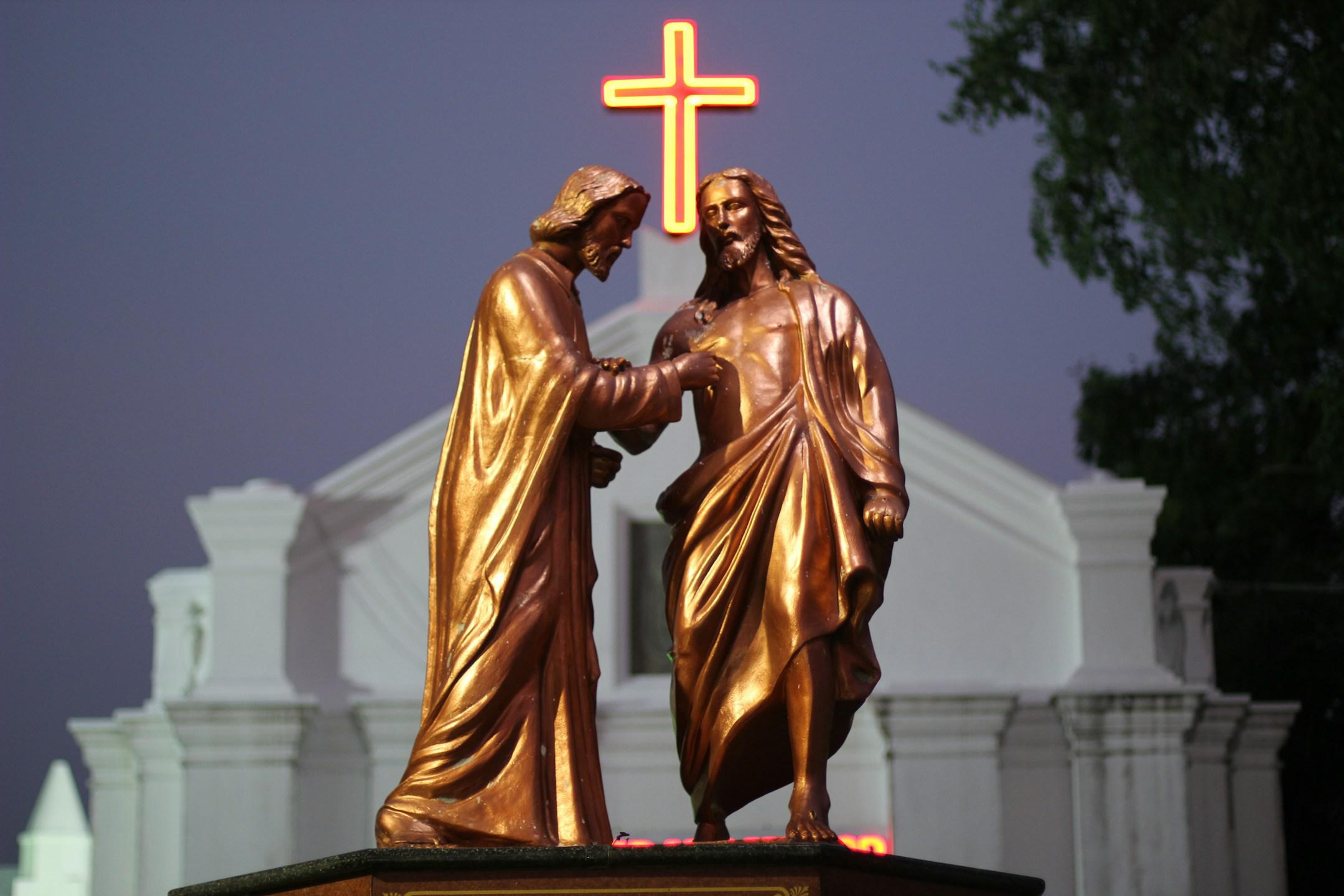
The desire to believe in God, or to embrace Christianity, is a profound yearning often accompanied by intellectual and moral struggles. This essay explores how to navigate these challenges, drawing on the insights of St. Augustine, St. Thomas Aquinas, Viktor Frankl, and other influential thinkers.
The Desire for God: A Common Human Longing
The search for God often begins as a recognition of an innate longing for meaning, truth, and transcendence. As St. Augustine wrote, "You have made us for Yourself, O Lord, and our hearts are restless until they rest in You" (Confessions, I.1). This restlessness reflects humanity's deep awareness that finite experiences point to something greater.However, this yearning can be obstructed by doubts and perceived moral incompatibilities. Viktor Frankl highlights in Man’s Search for Meaning that facing life’s difficulties can deepen understanding: “He who has a why to live can bear almost any how” (Frankl, 2006). This implies that grappling with intellectual and moral questions is not a weakness but a path toward faith.
Addressing Intellectual Challenges
Faith and Reason: Partners, Not Enemies
St. Thomas Aquinas, in his Summa Theologica, asserts that reason and faith are complementary paths to truth. He argues, “Faith does not destroy reason, but completes it” (Summa Theologica, I, Q.1, Art.8). For those grappling with intellectual doubts, Christian philosophy offers clarity that belief in God is rational and coherent.Contemporary thinkers like William Lane Craig and Bishop Robert Barron continue this tradition. Craig’s Reasonable Faith (2008) and Barron’s Word on Fire ministries engage with scientific and philosophical challenges, demonstrating how faith can withstand intellectual scrutiny (Barron, 2011; Craig, 2008).
The Problem of Evil and Suffering
One of the most significant intellectual challenges is the problem of evil. St. Augustine addresses this issue in City of God, concluding that evil is not a substance but the privation of good, stemming from the misuse of free will (City of God, XI.9). Viktor Frankl’s reflections on suffering during the Holocaust offer a complementary perspective: immense suffering can be a framework for finding meaning and divine presence (Frankl, 2006).
Doubt as a Catalyst for Growth
C.S. Lewis suggests in Mere Christianity that doubt is not the opposite of faith but a precursor to deeper understanding (Lewis, 2001). Engaging with doubts through study, prayer, and discussion can lead to a more robust faith.
Confronting Moral Challenges
The Church as a Hospital for Sinners
Many struggle with perceived moral incompatibilities within their lives or the Church. St. Augustine’s life illustrates transformation; despite early hedonism, he embraced faith, saying, “Late have I loved You, Beauty so old and so new” (Confessions, X.27). Pope Francis describes the Church as a “field hospital,” reminding us that it is a place for the broken and seeking, not just the saintly (Francis, 2016).
Aligning Moral Intuition with Divine Truth
St. Thomas Aquinas’ natural law theory argues that the law written on human hearts aligns with God’s moral order (Summa Theologica, I-II, Q.94). For those who struggle with Christian ethics, this principle offers hope that study and community can reveal how God’s commandments lead to human flourishing.
Practical Steps for the Seeker
- Engage with Scripture and Prayer: Begin with small, consistent habits like reading Psalms or the Gospels daily. Prayer, even if uncertain, opens the heart to God.
- Seek Community: Join a church or small group where struggles can be shared openly.
- Learn from the Saints and Thinkers: Study writings by St. Augustine, St. Thomas Aquinas, Viktor Frankl, and contemporary theologians.
- Practice Patience: Trust that faith is a journey and allow time for intellectual and spiritual growth.
Conclusion
The journey to faith is rarely straightforward, but the examples of St. Augustine, St. Thomas Aquinas, Viktor Frankl, and others show that intellectual and moral challenges can lead to deeper understanding. Faith is not about having every answer but trusting that God holds your questions.As Jesus said, “Seek, and you will find; knock, and it will be opened to you” (Matthew 7:7). The journey may be arduous, but the destination—a life grounded in God’s love and truth—is worth it.
References
- Augustine, St. (1998). Confessions. Translated by Maria Boulding. New York: Vintage Spiritual Classics.
- Augustine, St. (1945). City of God. Translated by Henry Bettenson. London: Penguin Classics.
- Aquinas, St. Thomas. (1947). Summa Theologica. Translated by the Fathers of the English Dominican Province. New York: Benziger Bros.
- Frankl, Viktor. (2006). Man’s Search for Meaning. Boston: Beacon Press.
- Lewis, C.S. (2001). Mere Christianity. New York: HarperOne.
- Craig, William Lane. (2008). Reasonable Faith: Christian Truth and Apologetics. Wheaton, IL: Crossway.
- Barron, Robert. (2011). Catholicism: A Journey to the Heart of the Faith. New York: Image Books.
- Francis, Pope. (2016). The Name of God Is Mercy. New York: Random House.